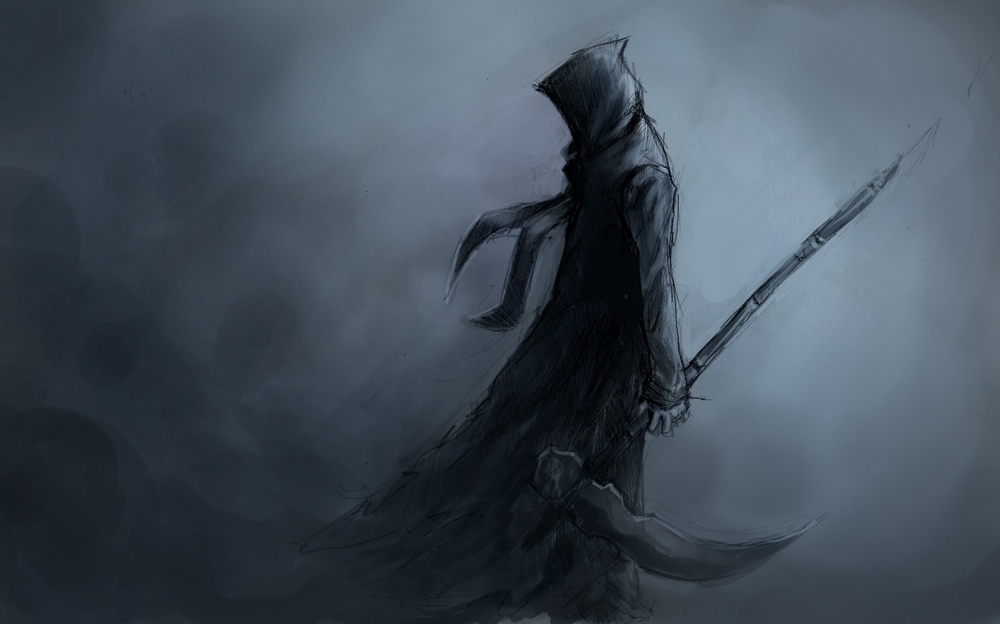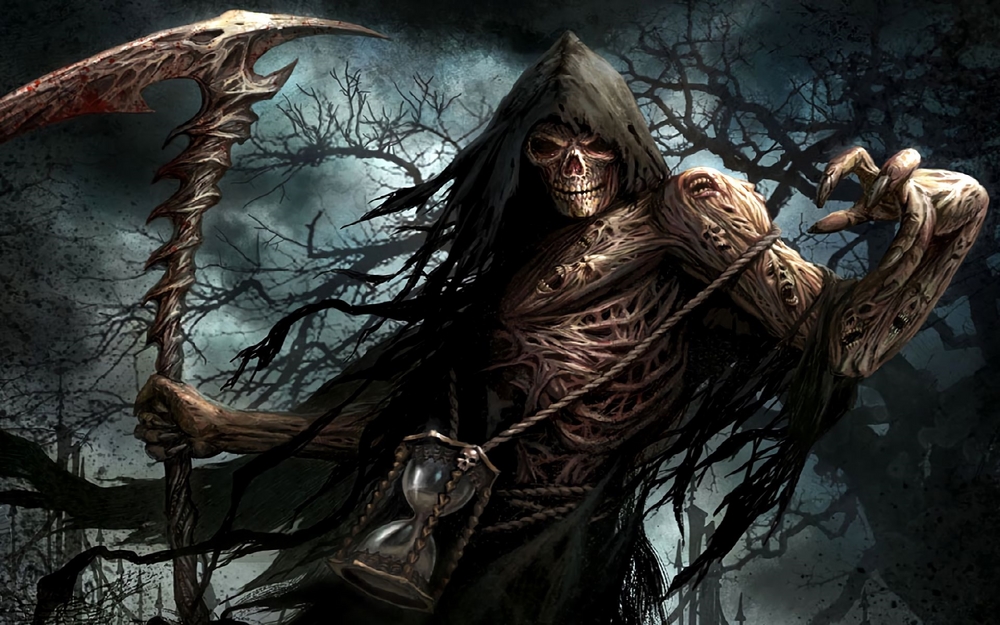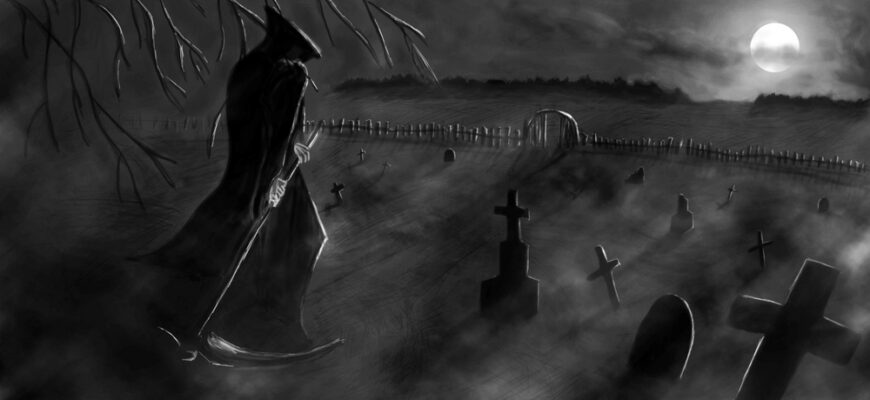Death Dream Meaning often encompasses profound themes of transformation, endings, and the subconscious processing of life changes. In many cultures and psychological interpretations, dreaming about death is not typically seen as a literal premonition. Instead, these dreams can symbolize the conclusion of one phase or aspect of life, making way for new beginnings and personal growth. Dreams of death may reflect the dreamer’s fears, anxieties, or feelings about change and the unknown. They can also be a manifestation of the dreamer’s internal struggles with letting go, whether it’s of past experiences, relationships, or outdated aspects of the self. By exploring the context and emotions of death dreams, we can uncover insights into the dreamer’s attitudes toward change, loss, and their own mortality.
- Symbolic Meanings of Death in Dreams
- Death as a Symbol of Transformation and Endings
- New Beginnings and Personal Change
- Subconscious Thoughts About Mortality and Loss
- Emotional and Psychological Aspects of Death Dreams
- Processing Fears and Anxieties
- Reflections on Grief and Acceptance
- Contextual Interpretations of Death Dreams
- Different Scenarios Involving Death
- Death of Self Versus Others in Dreams
- Common Themes in Death Dreams
- Escaping or Avoiding Death
- Rebirth and Renewal Themes
- Cultural and Spiritual Perspectives on Death Dreams
- Historical and Cultural Views on Death in Dreams
- Spiritual and Mythological Interpretations
- Conclusion
- Death Dream Meaning
Symbolic Meanings of Death in Dreams
Dreams about death, while often unsettling, carry deep symbolic meanings that extend beyond the literal interpretation of loss and ending. These dreams can reflect significant transformations, personal changes, and the dreamer’s subconscious musings on mortality and loss. Understanding the symbolic representation of death in dreams can provide insights into the dreamer’s emotional and psychological state, highlighting their fears, transitions, and acceptance of life’s natural cycles.
Death as a Symbol of Transformation and Endings
In dreams, death often symbolizes significant transformation and the conclusion of a particular phase or aspect of life. This can represent the end of a relationship, career, belief, or even a part of the dreamer’s identity. Experiencing death in a dream might indicate that the dreamer is undergoing or is on the cusp of a major transition, shedding old patterns or ways of being.
The nature of the death in the dream – whether peaceful, sudden, or dramatic – can also provide clues about the dreamer’s feelings towards these changes. A peaceful passing might suggest readiness and acceptance, while a more violent end could signify resistance or internal struggle with the process of transformation.
New Beginnings and Personal Change
Contrary to its ominous connotation, death in dreams can also herald new beginnings and personal growth. Following the theme of transformation, the end symbolized by death paves the way for something new to emerge. Such dreams might appear at times when the dreamer is contemplating significant life changes, exploring new opportunities, or embarking on a journey of self-discovery.
This symbolism of renewal and rebirth can encourage the dreamer to embrace change and view endings as necessary for growth. It might be a subconscious push to break free from limiting circumstances or behaviors and step into a new, more fulfilling phase of life.
Subconscious Thoughts About Mortality and Loss
Dreams about death can also reflect the dreamer’s subconscious thoughts and feelings about mortality, loss, and the impermanence of life. These dreams might arise during periods of contemplation about life’s meaning, existential questions, or after experiencing or learning about death in the waking world.
Such dreams can bring to the surface hidden fears, anxieties, or unresolved grief related to death and loss. They might represent the dreamer’s process of coming to terms with their own mortality or coping with the loss of others. Understanding these aspects in dreams can facilitate emotional healing and help the dreamer develop a more profound acceptance and appreciation of life’s transient nature.
Emotional and Psychological Aspects of Death Dreams

Dreams about death, while often jarring, can provide significant insight into the dreamer’s emotional and psychological state. These dreams might surface in response to underlying fears, anxieties, grief, or as part of the process of coming to terms with change and acceptance. Analyzing the emotional and psychological contexts of these dreams can be crucial in understanding their deeper significance and the subconscious messages they may be conveying.
Processing Fears and Anxieties
Dreams featuring death often symbolize the dreamer’s fears and anxieties. These might include fear of the unknown, fear of change, fear of failure, or even fear of losing someone or something important. Experiencing death in a dream can be the subconscious mind’s way of processing these fears, bringing them to the surface for acknowledgment and examination.
The way death is presented in the dream can provide further insights into these fears. For instance, an unexpected or violent death might signify sudden changes or disruptions that the dreamer feels unprepared for. Conversely, a more peaceful passing could indicate a subconscious readiness to confront and work through these fears. Recognizing and addressing the fears underlying these dreams can be a crucial step in the dreamer’s emotional healing and personal growth.
Reflections on Grief and Acceptance
Dreams about death can also be reflective of the dreamer’s experiences with grief and the journey towards acceptance. For those who have lost a loved one or experienced a significant loss, dreams of death might be a part of the grieving process, helping the dreamer to work through their sadness and come to terms with their loss.
These dreams can vary in nature, sometimes bringing comfort or offering a sense of closure, while at other times they may reopen unresolved emotions or questions. The emotional tone of these dreams can reveal the dreamer’s current stage in the grieving process and their progress towards acceptance and healing. Such dreams encourage introspection and emotional processing, aiding the dreamer in navigating their grief and moving towards a place of acceptance and peace.
Contextual Interpretations of Death Dreams
Dreams involving death can vary widely in their scenarios and contexts, each offering distinct insights into the dreamer’s subconscious. The specific details and nature of these death-related dreams can significantly influence their interpretation. Understanding the context, whether it involves the dreamer’s own death or that of others, and the circumstances surrounding these dream events, can reveal deeper emotional and psychological meanings.
Different Scenarios Involving Death
The various scenarios of death in dreams can have different symbolic interpretations. For instance, witnessing a peaceful, natural death might symbolize a gentle transition or acceptance of change. In contrast, a sudden or violent death in a dream could represent abrupt changes, unexpected losses, or unresolved internal conflicts.
Dreams where death occurs in specific settings, such as at home, in a public place, or in an unfamiliar environment, can also influence their meaning. Each setting might reflect different aspects of the dreamer’s life. For example, a death occurring at home might symbolize personal or family-related changes, while a public setting could relate to social or professional aspects of the dreamer’s life.
Death of Self Versus Others in Dreams
Dreams about one’s own death can be particularly impactful. These might symbolize the dreamer’s transformation, the end of an identity or phase in their life, or their feelings about personal changes. Such dreams can reflect the dreamer’s feelings about their own mortality or significant life transitions, serving as a catalyst for self-reflection and personal growth.
Alternatively, dreams about the death of others, such as family members, friends, or even strangers, can represent the dreamer’s feelings and perceptions about their relationship with those individuals or aspects of themselves that those individuals represent. For example, dreaming about the death of a close friend might signify changes in the friendship or the dreamer’s fears of losing the friendship. It could also symbolize aspects of the dreamer’s personality or life that are changing or ending.
In both scenarios, the dreamer’s emotional response to the death—whether it’s fear, sadness, indifference, or relief—provides important clues to their subconscious feelings and attitudes toward the changes or endings represented in the dream. These dreams encourage the dreamer to explore their feelings about endings and transitions, offering insights into their process of coping with change and personal evolution.
Common Themes in Death Dreams
Dreams about death, while varied in their scenarios, often revolve around certain common themes. These themes can range from escaping or avoiding death to motifs of rebirth and renewal. Each theme carries its unique symbolism and can offer insights into the dreamer’s subconscious fears, hopes, and attitudes towards change and transformation.
Escaping or Avoiding Death
Dreams where the dreamer is escaping or avoiding death are quite common and can be highly indicative of the dreamer’s psyche. These dreams might represent the dreamer’s fear of facing certain realities or changes in their life. The act of escaping death can symbolize a desire to avoid confronting difficult situations, emotions, or changes that feel overwhelming or threatening.
Alternatively, these dreams can also reflect the dreamer’s resilience and will to overcome obstacles and challenges. Escaping death in a dream might symbolize triumph over difficulties, suggesting that the dreamer possesses the strength and resourcefulness needed to navigate through tough times. It can be a subconscious encouragement to face fears and tackle problems head-on.
Rebirth and Renewal Themes
Dreams about death that incorporate themes of rebirth and renewal often signify major transformations in the dreamer’s life. These dreams can symbolize the end of one phase and the beginning of another, reflecting personal growth, change, and the development of new perspectives.
Such dreams might manifest as the dreamer experiencing their own death and subsequent rebirth, which can be interpreted as shedding old aspects of the self and embracing new characteristics or paths in life. This process of symbolic death and rebirth in dreams can indicate the dreamer’s readiness to let go of the past and move forward with renewed purpose and understanding.
In both themes, the emotional response of the dreamer within the dream is crucial. It can reveal their feelings and attitudes towards change, challenge, and personal growth. By reflecting on these themes, the dreamer can gain a deeper understanding of their subconscious motivations and fears, as well as their capacity for resilience and transformation.
Cultural and Spiritual Perspectives on Death Dreams

Dreams about death have been interpreted in various ways across different cultures and spiritual beliefs, often carrying profound and complex meanings. These interpretations are shaped by historical, cultural, and mythological contexts, reflecting the diverse ways in which societies understand and process the concept of death. By exploring these perspectives, we can gain a richer understanding of death dreams and their significance.
Historical and Cultural Views on Death in Dreams
Historically and across cultures, death in dreams has been perceived in myriad ways. In some traditions, dreaming of death was seen as an omen or a prophetic vision, potentially foretelling real-life events or changes. For instance, in ancient civilizations like Egypt and Greece, dreams about death were sometimes interpreted as messages from the gods or as precursors to actual events.
On the other hand, in various cultures, death dreams are viewed more symbolically. They are often seen as indicative of transformations and life transitions rather than literal predictions of death. For example, in some Eastern cultures, dreaming of death is interpreted as a sign of the end of something old and the start of something new. This could relate to personal growth, the shedding of outdated beliefs, or changes in life circumstances.
Spiritual and Mythological Interpretations
In spiritual and mythological contexts, death dreams can carry deep symbolic meanings. Many spiritual traditions view death not as an end, but as a part of a cycle of rebirth and renewal. In these contexts, dreaming of death might symbolize spiritual transformation, the shedding of the ego, or the release of spiritual burdens.
Mythological interpretations often draw on the symbolism and archetypes associated with death. For example, in some mythologies, death is personified and its appearance in dreams might be interpreted in the context of the mythological narrative or the attributes of the death deity. In Jungian psychology, death is often seen as a significant archetype, representing profound change, the unconscious, and the integration of the shadow self.
These cultural and spiritual perspectives offer a multifaceted view of death dreams, providing a broader context for their interpretation. They remind us that such dreams, while sometimes unsettling, are rich with symbolic meaning and can offer valuable insights into our innermost thoughts, fears, and aspirations.
Conclusion
In conclusion, dreams about death, while often disconcerting, carry a wealth of symbolic meanings that extend far beyond the literal concept of mortality. These dreams can represent transformation, personal growth, endings, and new beginnings. They reflect the dreamer’s subconscious processing of change, their fears and anxieties, as well as their hopes and aspirations for renewal.
Through various cultural and spiritual lenses, death dreams are seen not just as omens or literal predictions, but as metaphors for life transitions and emotional evolution. They encourage introspection and can provide profound insights into the dreamer’s attitudes towards life’s changes, challenges, and the unknown.
The emotional response within these dreams, whether it’s fear, acceptance, or curiosity, also provides key insights into the dreamer’s psyche. It reveals their innermost feelings about change, loss, and transformation. By contemplating these dreams, individuals can gain a deeper understanding of their subconscious mind and use these insights for personal development and emotional healing.
Ultimately, death dreams, with their rich symbolism and varied interpretations, serve as powerful tools for self-discovery and growth, offering guidance and reflection on the journey through life’s ever-changing landscape.






